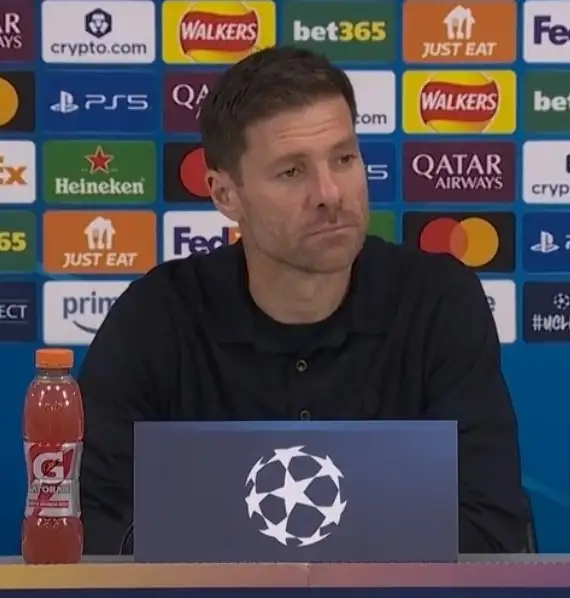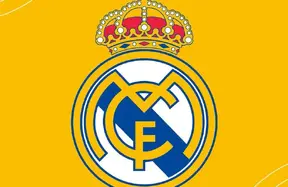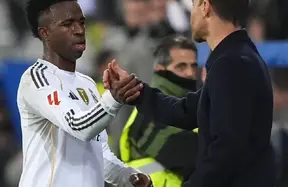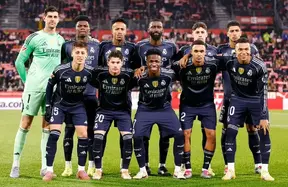Xabi Alonso’s post-match reflection on handling pressure and creating chances struck a nerve with the Real Madrid community. Supporters zeroed in on familiar pain points: conceding too many looks from set pieces, a sluggish passing rhythm, and the lack of an authoritative aerial presence in both boxes. The debate widened to Jude Bellingham’s best role, with some insisting he must play higher to unlock more chances, while others pushed hard for a classic No.9 signing. References to previous setbacks resurfaced, framing this as a recurring issue rather than a one-off. The message was clear: structure, tempo, and profiles need sharpening.

Following a tense, high-stakes outing, Xabi Alonso emphasized the importance of recognizing pressure moments, staying compact, and building clearer attacking patterns. His words echoed across the Madrid fanbase, which has wrestled with similar themes this season after demanding fixtures in Spain and Europe. Online discussions referenced recent matches where defending set pieces proved costly and transitions felt blunted by slow circulation. Fans also revisited earlier setbacks against major rivals, using those games as evidence of a broader pattern. The conversation quickly broadened from post-match remarks to a wider tactical audit of Real Madrid’s balance between control, verticality, and penalty-box presence.
🗣 Xabi Alonso: "We need to learn when we're under pressure and not concede. We lacked the ability to create more opportunities."
@MadridXtra
Impact Analysis
Alonso’s comments land squarely on issues Madrid fans have flagged all year: pressure recognition, set-piece discipline, and chance production. The first two are intimately related. When a team struggles to manage pressure phases, they concede territorial control, which multiplies defensive restarts and—inevitably—set pieces. Supporters noted an alarming number of dead-ball attempts conceded in one match; even if fan-counted, the sentiment tracks with the eye test. Madrid’s hybrid zonal schemes are robust when the first contact is clean, but can unravel without dominant aerial matchups, especially when the back line is pinned deep.
Chance creation is the other pole. The ball often moves too slowly through midfield, leaving wingers to receive against set blocks. When tempo dips, overlaps are delayed and the final pass becomes predictable. That’s where role clarity matters: Bellingham is lethal attacking space from advanced pockets; if he starts too deep, Madrid lose a unique penalty-box arrival and second-phase finisher. Pairing his high starting positions with a structured rest-defense (Tchouameni anchoring, Valverde shuttling) can preserve control while adding punch.
Personnel profiles round out the picture. Rüdiger’s aggression, Alaba’s organization, and Militão’s recovery speed must be synchronized on set plays. In attack, a penalty-box specialist would change crossing value and second-ball dynamics. Short of that signing, pattern speed, rotations, and a re-commitment to set-piece detail are the immediate levers. Alonso’s message simply crystallizes what Madrid must tighten: game-state management and repeatable mechanisms to generate high-quality shots.
Reaction
The fanbase split into familiar camps. One strand argued that you can’t create against elite defenses if Bellingham is asked to do too much in buildup, insisting his best work comes when he starts higher and arrives late into the box. Another contingent hammered the tempo, saying slow and sloppy circulation killed any chance of destabilizing a compact block. A third group focused on the dead-ball crisis: they lamented soft first contacts, poor second-ball reactions, and a chronic lack of aerial dominance that opponents now target by design.
Calls for a classic No.9 were loud, with Victor Osimhen frequently mentioned as the reference profile—pace to threaten depth, power to attack crosses, and gravity to free Vinícius and Rodrygo. Others countered that the issues are structural, not just personnel: even a top striker won’t fix passive rest-defense or inconsistent pressing traps. Several fans pointed to painful reference matches—against top European and domestic rivals—as proof this isn’t a one-off. Some highlighted that conceding a flurry of set-piece looks in a single night speaks to concentration and organization more than talent.
Despite the disagreements, there was consensus on two points: set pieces need urgent, specialized attention, and the midfield has to speed up sequences. The debate around Bellingham’s optimal spot and the striker question will rage on, but supporters broadly agree the team requires clearer automatisms and a sharper identity between control and verticality.
Social reactions
You can’t create chances against big teams with Jude as your midfielder Not possible 🥹
Nyx Nation (@nyxnation_)
If the passes are slow and sloppy,how would you create chances??
Michael Ahovi (@Michael_Ahovi)
He’ll be gone by Christmas
16 & 17 (@lsjanneh)
Prediction
Short term, expect Ancelotti to tighten set-piece protocols: clearer matchups (Rüdiger on the primary aerial threat), staggered zonal lines, and a designated blocker to free the best jumper for first contact. Training-ground emphasis will shift toward second-ball recovery and exit routes after the initial clearance, reducing repeat deliveries. Don’t be surprised to see a more conservative rest-defense structure—Tchouameni holding with fullbacks staggering—to cut off counters and stabilize territory.
In open play, Madrid will likely fast-track patterns that restore tempo: earlier switches to stretch blocks, pre-programmed third-man runs, and earlier diagonal deliveries to Vinícius in space. Bellingham should be stationed closer to the box in more phases, with Valverde and Camavinga (or another runner) bridging the gap between buildup and final third. That repositioning can lift chance quality without sacrificing control.
Medium term, the recruitment drumbeat grows. If a true No.9 doesn’t arrive, a hybrid forward who can pin center-backs and attack crosses will still be prioritized. However, the staff may first demand internal gains: Endrick’s integration, Rodrygo’s rotations between wing and central lanes, and set-piece marginal gains via specialist input. In Europe, these tweaks should cut shot volume conceded from restarts and add two to three high-quality chances per match. If the balance holds, Madrid’s ceiling remains intact for the business end of the season.
Latest today
- Kobbie Mainoo distances himself from brother's 'Free Kobbie Mainoo' T-shirt, insists no di...
- January knock: Man United primed for decisive moves as Amorim sets the tone
- Ethan Mbappé wishes Kylian a happy 27th birthday on Instagram as Real Madrid star shines
- Emelec prospect Diogo Bagüí set for MLS or Liga MX move - talks in final details
Conclusion
Alonso’s words carry weight because they mirror Madrid’s most fixable shortcomings. Handling pressure isn’t abstract; it’s a chain of behaviors—compactness, clear cues, and decisive first contacts—that drip into set-piece volume. Madrid do many hard things well: they control long stretches, they have elite individual talent, and they can flip games with moments. What’s missing is the repeatability that separates strong sides from inevitable champions.
Bring Bellingham closer to goal more often, re-accelerate the midfield’s passing rhythm, and treat set pieces like a game within the game. With Rüdiger’s edge, Militão’s athleticism, and Alaba’s organization, the tools exist to become reliable at dead balls; they just need sharper roles and habits. Up front, whether a marquee No.9 arrives or not, the team can still squeeze more from its current profiles by refining patterns and improving box occupation.
The fans’ frustration is understandable, but the path forward is tangible. Nail the details that travel—defensive structure, tempo, and set plays—and Madrid will not only steady their baseline, they’ll raise their ceiling when it matters most.



























Nyx Nation
You can’t create chances against big teams with Jude as your midfielder Not possible 🥹
Michael Ahovi
If the passes are slow and sloppy,how would you create chances??
16 & 17
He’ll be gone by Christmas
Doctor Zedd
That's your problem. You don't learn.
Big_K
How can Real Madrid improve their defense against set pieces after allowing 8 shots tonight?
『 Hollow 』
Our biggest problem in my opinion is that none of Madrid's players are capable of aerial duels, that is Madrid's biggest weakness which is always exploited by the opponent
daninic 🩸🐉
All the mystery to not train in England just to lose the game with a poor performance
Arash Mansouri
Tired of this guy already
Soussou
Courtois is saying the truth and the coach is lying lol
AnalysisRM
What they really should learn is how to defend set pieces and crosses. Horrible defense
Soussou
You still didn't learn after PSG and Atleti games ??
『 Hollow 』
Tell that to Huijsen, he's too tense and panicked
MagicalModric
We lack mentality obviously. The players were intimidated again by the home crowd of the opponent. Like we lose every duel, passing was beyond a joke and we couldn't compete at all...
frankzy
We need a proper striker, oshimen won't be a bad signing 😭😭
Gradi
Pls Cama is not a RW
Nö Lie Män📵
Your team is shit and the earlier you know the better… scoring against more teams in La Liga and an injury crises Barca doesn’t make you good🤣🤣…forgot to add the robberies that help you win on top🤣🤣
Ray_007🥷🏽🃏
Stop playing cama on the right man
KwameAtomHakimi
WACK Coach , what has happened to Ceballos?
Ranking
We don hear but abeg mke jnr rest for 3 games abeg, make rodrygo play rubbish self e pain
Boomerang🪃
He shouldn't start Arda in such games, he can't handle pressure
Bianca🦋
Guler is not him yet
Crypto with Haris ₿
Julián Álvarez (9) is now just 3 goals away from becoming Atlético Madrid’s 2nd-highest scorer in the Champions League, surpassing Saúl’s tally of 11. The top spot? Antoine Griezmann with 39. 🔥
CoinMarketCap
ZEC outperformed BTC over 7d and overtook XMR to become the largest privacy coin by market cap 1/2